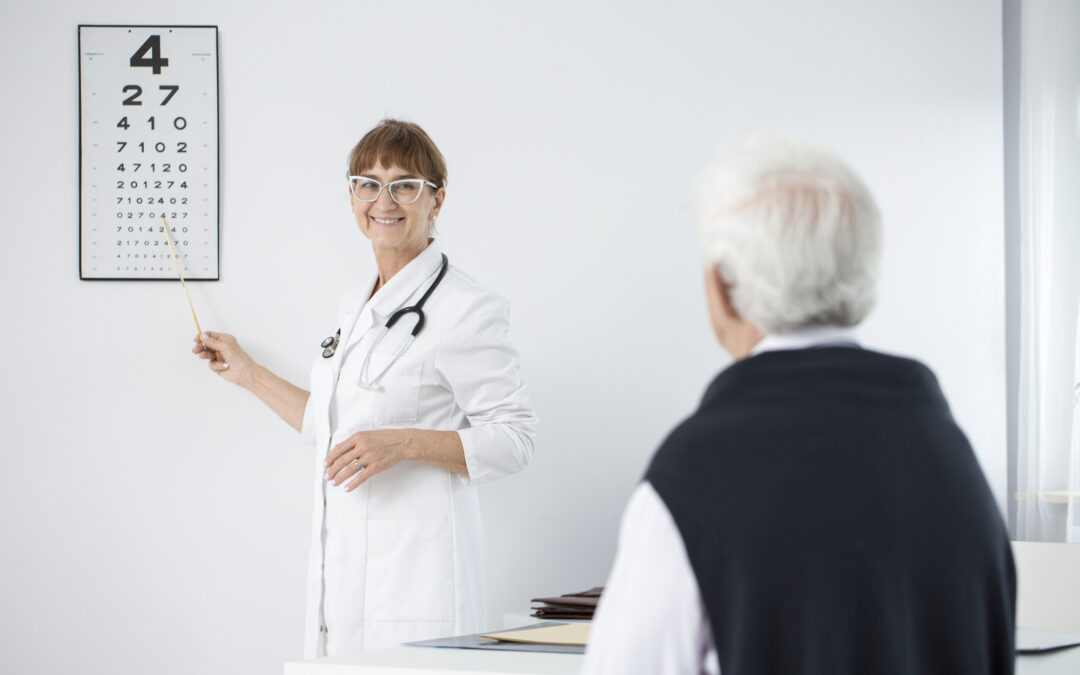This content has been archived. It may no longer be relevant
While we may not think of eye health often, our eyes are one of the most important parts of our body to keep healthy. We can aid our health in this area by implementing small changes into our daily routine. From eating healthy to making sure you schedule regular eyecare checkups, you can prevent future eyesight problems and add to your overall health.
Eating healthy is one way to keep your eyes in top-notch shape. While it is good for your whole body to eat right, it can be especially beneficial to your eyes. A diet that is low in fat and rich in nutritious foods like fruits, vegetables, and whole grains is generally recommended to keep your heart healthy, but also provides great benefits to your eyes. This is due to your eyes relying on arteries for oxygen and nutrients, in a similar way to your heart.
There are many foods that fit into a low fat and nutrient rich diet. Cold-water fish and nuts are rich in omega-3 fatty acids that can protect against dry eyes, macular degeneration, and cataracts. Eggs are rich in lutein and vitamin A, which can protect against night blindness, dry eyes, and promote eye function. Greens, especially leafy greens like spinach, kale, and collard greens, also contain lutein and zeaxanthin that help prevent the development of macular degeneration and cataracts. Citrus fruits, berries, and colorful fruits and vegetables contain vitamin C, which is thought to help decrease the risk of many eye diseases while also preventing cataracts and macular degeneration.
Another important part of keeping your eyes healthy is making sure you get regular eye checkups. Everyone should have their eyes screened regularly for any eye diseases as part of a medical eye exam. A medical eye exam should consist of an exam of the eye’s drainage angle, a pressure measurement, and a dilated optic nerve examination. If any damage to the optic nerve is identified, a visual field test should be performed, and photos should be taken to further examine. If it is found you have thin corneas, your eye doctor should monitor your eyes more aggressively to watch for diseases such as glaucoma.
It has been found that glaucoma is the leading cause of preventable blindness. Glaucoma is an eye disease that most people do not realize they have. It is characterized by three components: damage of the retinal cells and optic nerve, loss of visual field, and increased eye pressure. This disease can slowly cause lost sight if not checked regularly by your eye doctor. Once your eye doctor identifies the disease, they can prescribe you methods such as eye drops or laser help to keep the glaucoma at bay and prevent blindness. If you have any eye pressure or know you have glaucoma and suspect you may be losing vision, make sure you seek care with a glaucoma specialist.


